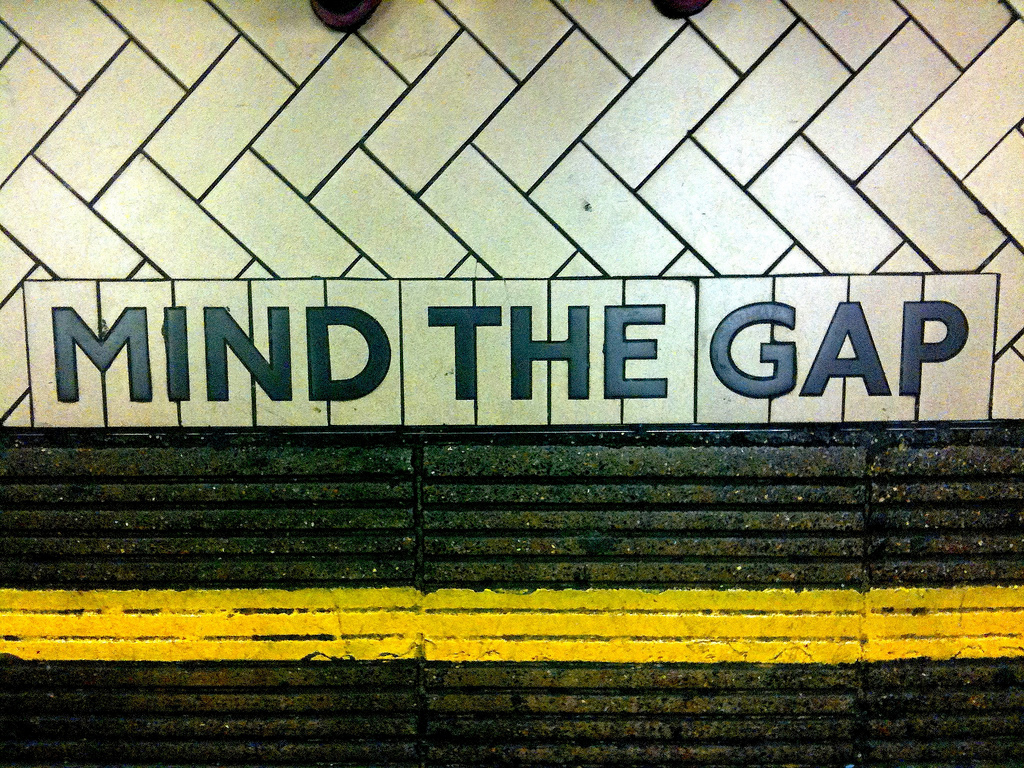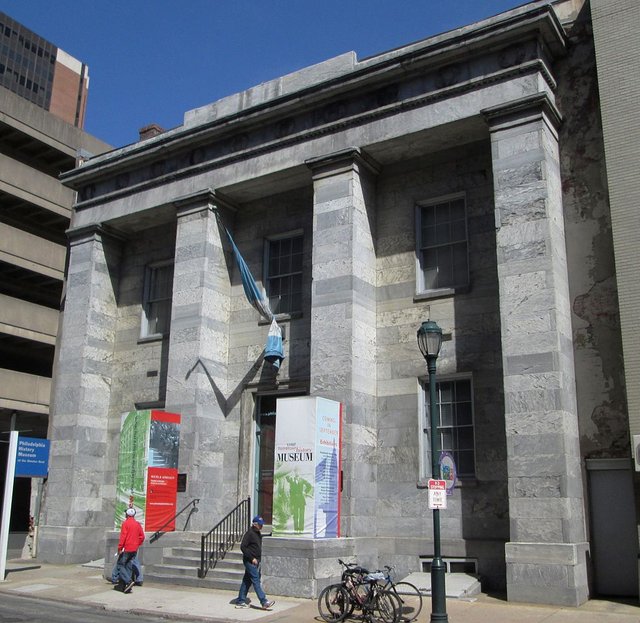Gaps in the Philadelphia history system
This week our class is describing needs we see in Philadelphia and proposing methods for the cultural sector to meet them. My classmates have already written eloquently about a variety of needs, from @kenfinkel and @jfeagan talking about winnowing and restructuring the history system to @dduquette's call for supporting (literal) maintenance of our historic and historical institutions. I'm going in a little different direction, not because I think any of these needs are illusory, but because I think there are some other compelling needs that fit our brief.

Photo by Ged Carroll under license CC BY 2.0
The History System in Philadelphia
TDC encourages us to look at history as a system. Looking at existing institutions’ content focuses can show us some of the gaps in that system here in Philadelphia’s. Philadelphia is known as the birthplace of the United State's founding documents, and, accordingly, much of the city's historical landscape is dedicated to the 18th century. This has come at the expense of buildings and stories which came after the era of independence, as when the buildings around Independence Hall were razed to emphasize it.
More recent additions to the history system in Philadelphia have typically been focused around specific topics (the Chemical Heritage Foundation) or specific ethnic or religious communities (National Museum of American Jewish History, African American Museum in Philadelphia). It is notable that few of these institutions focus on the city of Philadelphia or any part thereof.
There are, of course exceptions, and probably many institutions of which I am not aware. Sites such as the Rosenbach Museum and Library and Eastern State Penitentiary Historic Site are both institutions which have told locally rooted stories subsequent to American independence for instance.
Gaps in the History
I see two significant gaps: recent history and neighborhood-level history. @johnesmithiii beat me to the punch a bit with his post about the Philly History Truck, a project of the Temple University Center for Public History a few years ago. The History Truck model meets much of the needs I see, but not all of them (more on that later). It also doesn't include a brick-and-mortar location, which makes it hard for it to build a sense of belonging in the neighborhood and city.
One site that has tried to tell the Philadelphia story right up to the present is the Philly History Museum, formerly known as the Atwater Kent Museum. PHM is in dire straits right now, and at least part of it is down to the location in the old Franklin Institute (not the science museum). In the middle of Old City, PHM competes with much more popular institutions that are trying to tackle national issues. Its collection strikes an odd chord with the colonial revival architecture of the neighborhood in which it resides (which, coincidentally, I think is a good thing, but apparently it's not good for business). More importantly, PHM is far away from the neighborhoods from which its collection of Philadelphia vernacular culture is drawn.

Image of PHM by Beyond My Ken used under CC BY-SA 4.0
Another Gap
In addition to the history sector, I also think it is important to consider institutions in the context of broader systems. How many museums in the Philadelphia area have thought of themselves as intrinsically linked to activist organizations or social welfare groups? @cheider has been schooling me on the combination of cultural institutions and social services that were Progressive Era settlement houses, but the connection between the stewards of the past and the needs of the present have been tenuous in much of Philadelphia. Museums might take advocacy roles in their niche (as Eastern State Penitentiary Historic Site has done around issues of mass incarceration), but they haven't been positioned to engage with a variety of issues. The History Truck project could connect with neighborhoods, but is too transient a model to build true relationships with various partners.
So what?
Taking these three needs—recent history, residential history, and connection with organizations working to change the present and shape the future—into account, what kinds of programs or projects might make vital contributions to Philadelphia? Stay tuned for my proposal. In the meantime, check out my classmates' proposals under the #loi2018 tag!
100% of the SBD rewards from this #explore1918 post will support the Philadelphia History Initiative @phillyhistory. This crypto-experiment conducted by graduate courses at Temple University's Center for Public History and MLA Program, is exploring history and empowering education. Click here to learn more.
Agreed! Similar idea to Andrea Burns' discussion on the Black Museum Movement. "A history museum for us and by us." Interesting to compare the PHM's situation with the history truck and other grassroots efforts like Monument Lab. Although temporary, these projects seem more effective. We should consider their sustainability overtime and ways to build that more lasting "sense of belonging."